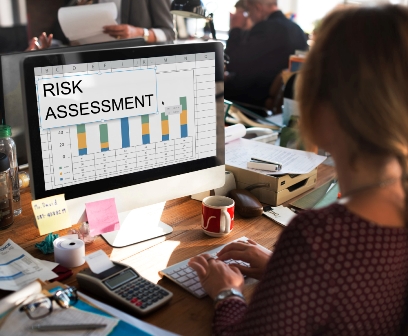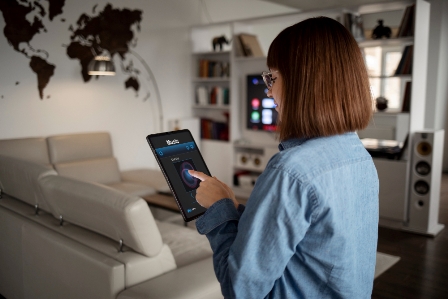In a world where safety is paramount, securing your home is not just an option; it’s a necessity. With the rising concerns of theft, vandalism, and unforeseen emergencies, investing in a home security system has become a crucial part of risk management. This article delves into how having a security system for your home serves as a robust risk management strategy, offering protection, peace of mind, and numerous benefits.
Understanding Risk Management
What is Risk Management?

Risk management is the systematic process of identifying, assessing, and mitigating potential risks. In the context of home security, it involves recognizing the threats your home may face and taking measures to minimize them.
Assessing Potential Risks in a Home Environment
When it comes to home security, potential risks include burglary, fire, carbon monoxide leaks, and data breaches. Understanding these risks is the first step in effective risk management.
The Role of Risk Management in Daily Life
Risk management isn’t limited to businesses or financial institutions. It’s a concept that plays a vital role in our daily lives as well.
Identifying Risks in Everyday Situations
We encounter risks in everyday life, from crossing the street to using household appliances. Identifying these risks helps us stay safe.
The Significance of Proactive Risk Mitigation
Proactive risk mitigation means taking steps to prevent potential problems. It’s far more effective than dealing with the consequences after a risk materializes.
Home Security Systems: An Integral Part of Risk Management
Prevention of Break-Ins
Statistics on Home Break-Ins Statistics reveal that homes without security systems are more likely to be targeted by burglars. The presence of security measures can significantly reduce the risk of break-ins.
How Security Systems Act as Deterrents
Security systems, with visible cameras and alarms, act as powerful deterrents. Criminals are less likely to target a home that appears well-protected.
Immediate Response to Emergencies
Fire and Carbon Monoxide Detection Security systems often include sensors for fire and carbon monoxide. When these threats are detected, the system triggers immediate alerts.
The Role of Security Systems in Summoning Help
In emergencies, seconds matter. Security systems can automatically contact the relevant authorities, ensuring help arrives swiftly.
Personal Safety and Peace of Mind
Home security isn’t just about property; it’s about personal safety and peace of mind. Knowing your loved ones are protected offers a sense of security that’s invaluable.
Surveillance and Monitoring
24/7 Monitoring Services Security systems offer around-the-clock monitoring. Professionals keep an eye on your home, ready to respond to any anomalies.
Accessible from Anywhere: Remote Surveillance
Modern security systems can be accessed remotely, allowing homeowners to check on their properties even when they’re not at home.
Real-Time Notifications and Alerts
Security systems provide real-time alerts, ensuring you’re informed instantly if something goes wrong.
Safeguarding Valuables
Protecting Your Assets Security systems safeguard your valuables, from jewelry to electronics. The mere presence of these systems makes theft less likely.
Digital Security: Safeguarding Sensitive Data
In a digital age, security systems protect not only physical possessions but also sensitive data. Your personal information remains secure.
Insurance Benefits
The Correlation Between Security Systems and Insurance Premiums Many insurance companies offer lower premiums to homeowners with security systems. This is a financial benefit of risk management.
Saving Money in the Long Run
While investing in a security system may seem costly, it’s a long-term saving. Lower insurance costs and the prevention of potential losses make it a wise financial decision.
The Evolution of Home Security Systems

Traditional Alarms vs. Modern Technologies
A Comparison of Traditional Alarm Systems and Modern, Smart Security Technology Modern security systems far surpass traditional alarms. They offer advanced features and greater convenience.
Pros of Modern, Interconnected Systems
Enhanced Convenience
- Remote Access: You can monitor and control your security system from anywhere using a smartphone or computer.
- Automation: These systems can integrate with other smart devices in your home, allowing for seamless automation and control.
Improved Security
- Real-time Alerts: Receive instant notifications of any security breaches or unusual activities.
- Intelligent Monitoring: Smart systems can distinguish between real threats and false alarms, reducing unnecessary alerts.
Integration with Other Devices
- Smart Home Compatibility: Interconnected systems can work with devices like smart doorbells, locks, and lights, enhancing overall home security.
- Voice Control: Many smart systems can be controlled via voice commands through virtual assistants like Amazon Alexa or Google Assistant.
User-Friendly Interfaces
- Intuitive Apps: The user interfaces are designed to be user-friendly and accessible, making it easy for homeowners to manage their security systems.
Energy Efficiency
- Energy Savings: You can automate and control devices to reduce energy consumption when you’re not at home, leading to potential cost savings.
Cons of Modern, Interconnected Systems
Cost
- Initial Investment: Smart security systems tend to be more expensive than traditional security setups due to the cost of smart devices and installation.
- Subscription Fees: Some features, such as cloud storage for video footage, may require ongoing subscription payments.
Technical Complexity
- Learning Curve: Using and troubleshooting interconnected systems may require technical know-how, which can be challenging for some users.
- Software Updates: Frequent updates are necessary to ensure system security and functionality.
Privacy Concerns
- Data Privacy: Interconnected systems collect data about your activities, which may raise concerns about privacy and data security.
- Hacking Risks: Any connected device is susceptible to hacking if not adequately secured.
Reliability
- Dependence on Connectivity: These systems rely on a stable internet connection. Any disruptions in connectivity may affect their performance.
- Power Outages: While many systems have battery backups, prolonged power outages can compromise their functionality.
Compatibility Issues
- Device Compatibility: Not all smart devices are compatible with every smart security system. This can limit the range of devices you can integrate.
Home Automation
The Integration of Home Security into Everyday Life Security systems now seamlessly integrate into everyday life, offering control and convenience.
Control at Your Fingertips: Smart Home Applications
With smart home applications, you can control your security system and monitor your home with ease.
The Future of Home Security
Emerging Technologies in the Security Industry
Security technology is continually evolving. New technologies are enhancing home security, promising even greater protection.
Preparing for a More Secure Future
As security technology advances, homeowners should embrace these innovations to stay ahead of potential risks.
The Human Element: Peace of Mind
Psychological Benefits
Reducing Stress and Anxiety Home security systems offer peace of mind by reducing stress and anxiety related to potential threats.
Feeling Safe in One’s Own Home
Ultimately, the goal of any risk management strategy, including home security, is to create a sense of safety and well-being in one’s own home.
FAQs
Here are some FAQs related to How is Having a Security System for Your Home a Risk Management Strategy
Having a security system for your home is a risk management strategy because it helps identify, assess, and mitigate potential risks such as break-ins, fires, and other emergencies. It acts as a proactive measure to protect your property, assets, and personal safety, reducing the likelihood of adverse events and their consequences.
People purchase various forms of risk management to protect themselves, including insurance, security systems, emergency preparedness supplies, and legal documents. These measures are designed to mitigate potential risks and provide a safety net in case of unforeseen events.
To protect themselves from significant financial losses in the event of property damage, accidents, or other unforeseen circumstances, people often purchase insurance policies. These policies, such as home insurance, auto insurance, and health insurance, provide financial protection and risk management.
Home security is essential because it helps safeguard your property, assets, and, most importantly, your personal safety. It reduces the risk of break-ins, emergencies like fires or carbon monoxide leaks, and offers peace of mind. Home security ensures that you and your loved ones feel safe in your own home.
Home security systems have proven to be highly effective in deterring potential burglars and promptly responding to emergencies. Statistics show a significant decrease in break-ins in homes with security systems. Their effectiveness is not only in preventing incidents but also in providing peace of mind.
A security system is highly important, serving as a comprehensive risk management strategy for your home. It offers protection against various risks, including break-ins, emergencies, and asset loss. Beyond tangible benefits, a security system provides psychological comfort and peace of mind, making it an invaluable addition to any home.
Conclusion
Having a security system for your home is far more than just a set of cameras and alarms. It is a comprehensive risk management strategy that prevents break-ins, ensures immediate response to emergencies, offers 24/7 surveillance and monitoring, safeguards valuables, and even lowers home insurance costs. As the world of home security systems continues to evolve, these systems have become an integral part of our lives, providing not only protection but also convenience.